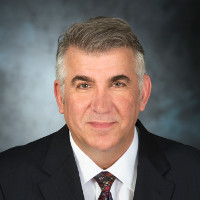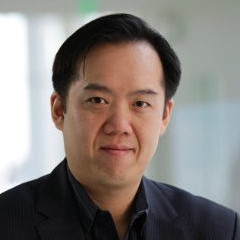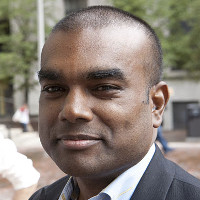Partner Webcast
The Connected City: Trends and Developments Driving Smart City Innovation
Presented by:
IEEE Collabratec
Join the Smart Cities community on IEEE Collabratec
Sign up for your free accountAbout the Webcast
The technological components of a “smart city,” including everything from smart grids and driverless cars to automated buildings and advanced sensors, can be complicated. But the core question behind the purpose of a smart city is quite simple: does it make human lives better?
That’s the key theme explored in the webcast “The Connected City: Trends and Developments Driving Smart City Innovation,” produced by MIT Technology Review and IEEE Collabratec. Three influential subject matter experts with different backgrounds in developing smart cities delve into how these cities influence their human populations. Other discussion topics include government’s role in advancing smart cities and key trends affecting the smart-cities landscape. The speakers also examine the required factors for creating intelligent urban environments including a vision, efficient use of technology, an environment that attracts a talented workforce, and an enabling infrastructure.
Dr. Massoud Amin, a professor at the University of Minnesota and IEEE fellow, focuses his research on the energy that powers smart cities, such as the important global transition dynamics needed to enhance these intelligent systems and the technology influencing them. Dr. Ryan Chin, CEO of OptimusRide, concentrates on urban mobility systems, with intriguing work on a network of self-driving, shared-use, and electric vehicles called Autonomous Mobility-on-Demand (MoD) Systems. Finally, Nigel Jacob comes from the world of civic innovation, working specifically on making urban life better via cutting-edge, people-oriented applications of technology and design.
“Everything we do is geared towards improving human condition and advancing the civilization that we often take for granted,” Amin says. “As engineers, we enable better quality of life for people.”
The bigger-picture discussion continuously points to the idea of promoting a “people-first” approach to developing smart cities. For example, one topic of concern is how involved residents are in transforming their communities into “smart cities.”
“For the past several years, we have been experimenting with several online platforms that are designed to make civic engagement as easy as possible,” Jacob says. “We have always seen this as an opportunity to explore the interface between the public and the private sectors.” By incorporating public input into the decision-making process, communities can feel confident that the systems are doing what’s needed and requested.
“The whole idea of a smart city is not just about power or buildings. It’s about the whole ecosystem--how you educate people, how you empower people, the economic growth it can bring and what opportunities it can bring,” Amin says.
Continue the conversation on IEEE Collabratec, where smart city concepts and ideas are debated, reviewed, and explored every day.
Speakers
-

Massoud Amin
Read Bio » -

Ryan Chin
Read Bio » -

Nigel Jacob
Read Bio » -

Jason Pontin
Read Bio »